Children at AHIS learn through a unique bilingual curriculum based on the English National Curriculum which is integrated with the Cambodian Curriculum following an integrated Topic approach.
Early Years Curriculum
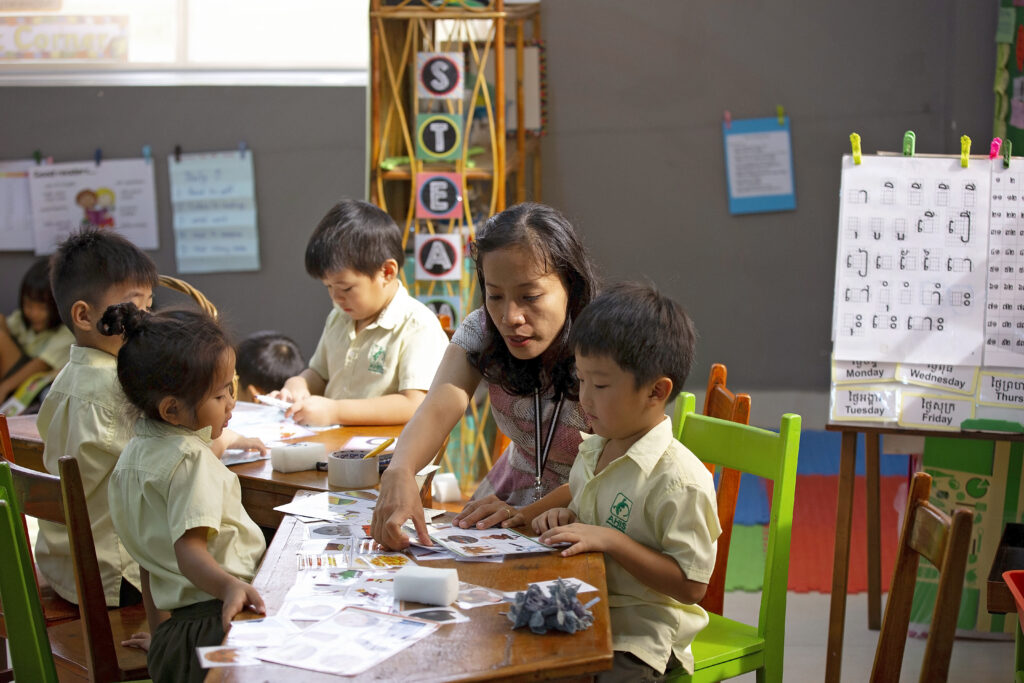
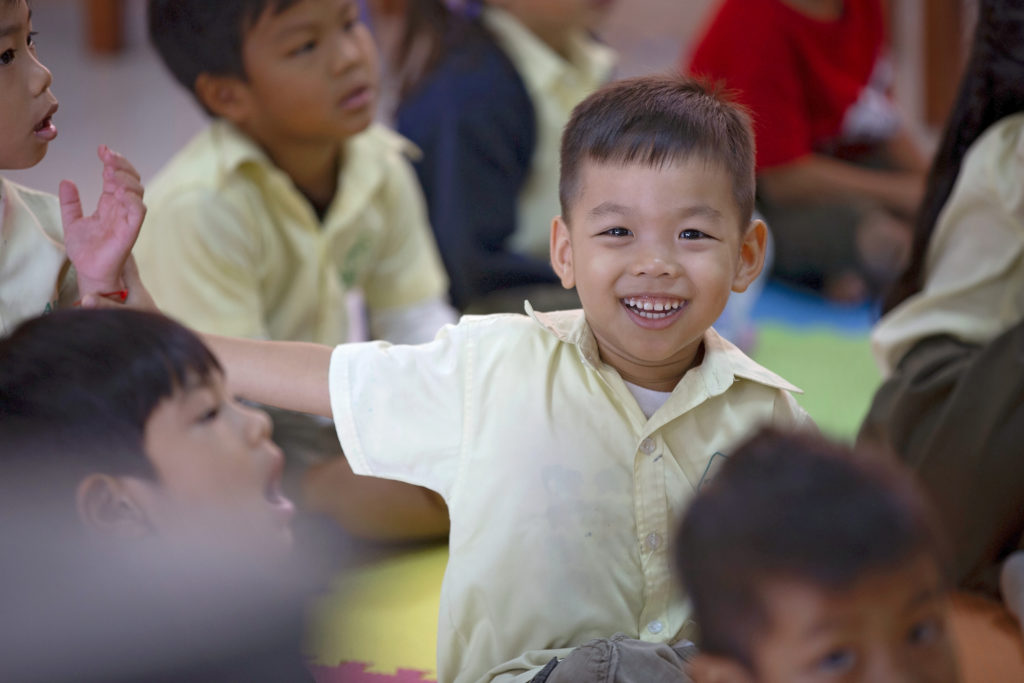
The UK Early Years Foundation Stage [EYFS] states, ‘Children develop quickly in the early years, and early years practitioners aim to do all they can to help children have the best possible start in life. Children have a right, spelled out in the United Nations Convention on the Rights of the Child, to provision which enables them to develop their personalities, talents and abilities irrespective of ethnicity, culture or religion, home language, family background, learning difficulties, disabilities or gender.’
At AHIS the EYFS is used to plan creative, interesting, play-based learning for the children in EY1 – 3. The children are active learners, developing independence as they choose and experience open-ended activities. There is a focus on English Literacy and Numeracy as these skills are foundational to future learning. AHIS engages students with Jolly Phonics, a multi-sensory program that supports early reading and writing. Students begin to read and write during EY2 and 3. Khmer phonics and vocabulary are enriched daily as well, however, the main focus is on developing English in school alongside their home language. This unique integrated curriculum is topic based and covers the following areas of learning:
Personal, Social and Emotional Development
Creative Development
Communication, Language and Literacy
Problem Solving, Reasoning and Numeracy
Knowledge and Understanding of the World
Physical Development
Primary Curriculum
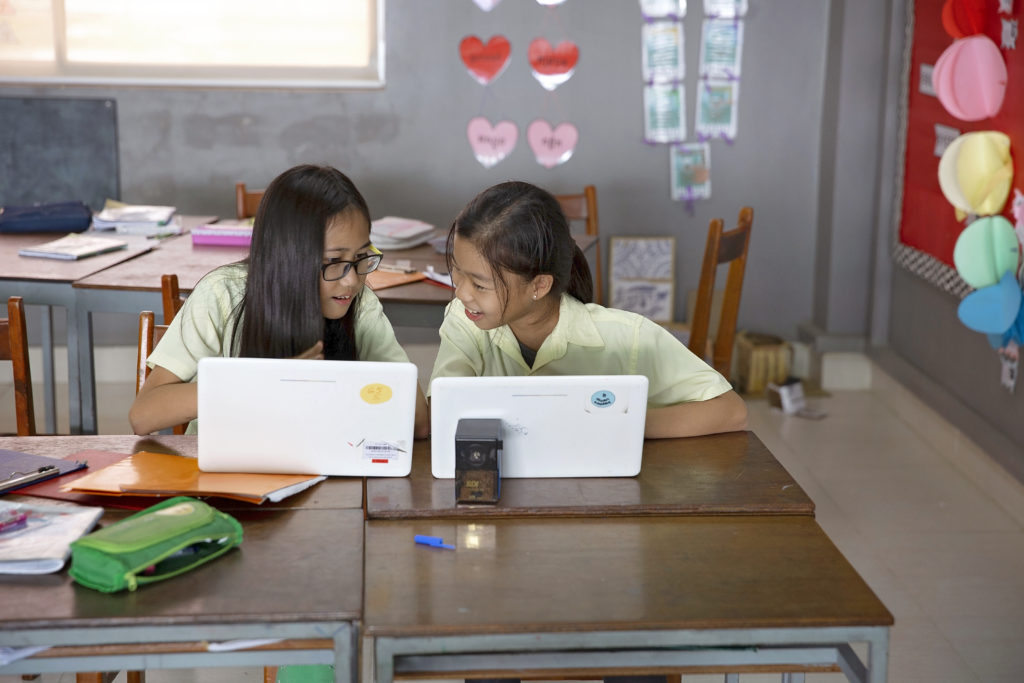
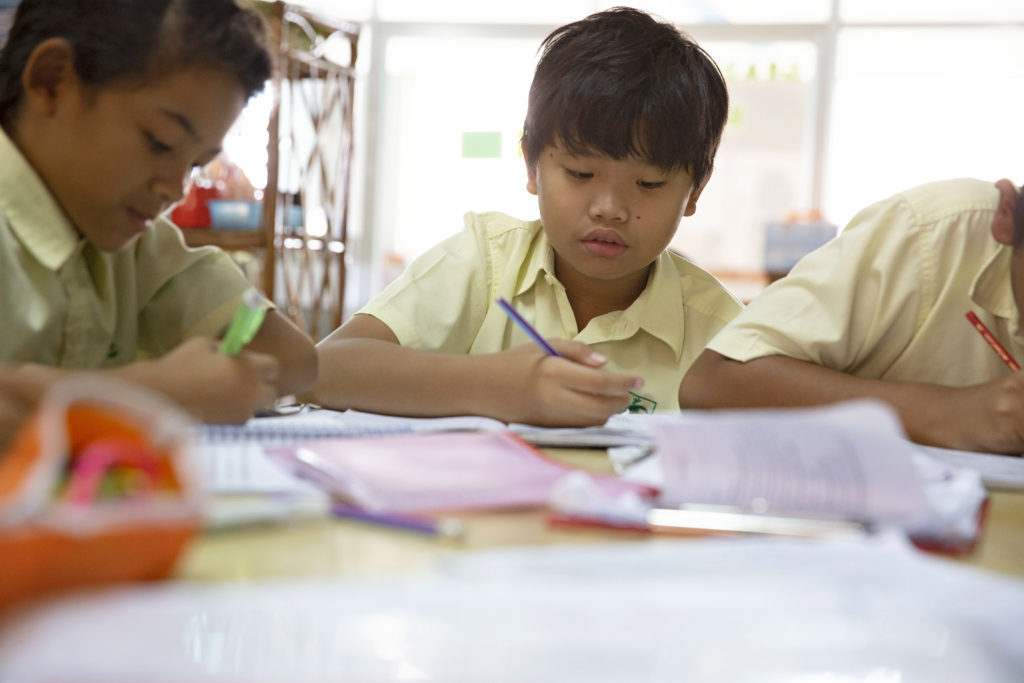
Primary comprises Years 2 – 6. The teachers follow a unique curriculum that integrates the English National Curriculum with the Cambodian National Curriculum through an inquiry-based topic approach in both English and Khmer. Literacy and Numeracy continue to be foundational to all learning while the curriculum remains broad and balanced across many subjects. Teaching and learning take place from a Biblical Christian Worldview.
The inquiry-based approach offered in Primary gives students the opportunity to ask and respond to Essential Questions and Big Ideas that are posed by the teachers, helping them to develop essential critical thinking and life application skills.
Foundational skills learned in Early Years are built upon as students increase their literacy and numeracy abilities. Literacy in both English and Khmer is developed as teachers incorporate daily opportunities to read, write, speak and listen in both languages. AHIS greatly values Khmer as the home language of the majority of our students and students are encouraged to read nightly in their home language as well as in English. Numeracy skills are also built upon, as students practise not merely the memorisation of math facts, but also learn to explain their process and how they solved the problems.
Topic lessons are based in history, social studies, geography and sciences. Each Year has topic lessons in English and Khmer. Once a week, students benefit from a combined lesson lead by English and Khmer teachers. This weekly lesson a great opportunity for our students to collaborate and use their knowledge of both languages and draw greater connections between the two.
Each year, our Year 6 students participate in the National Khmer exam. Students at AHIS have a notably high passing rate. By the time they leave Primary school, our students are well versed in English and Khmer, can easily transition between the two languages, and are well prepared for the academic demands of Secondary.
Secondary Curriculum
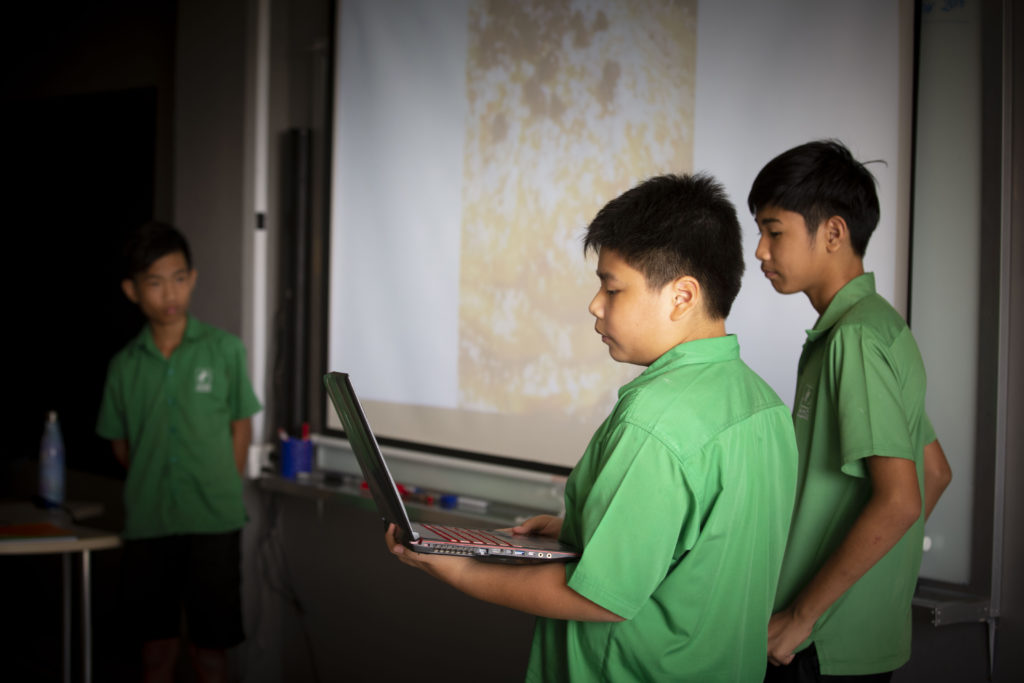
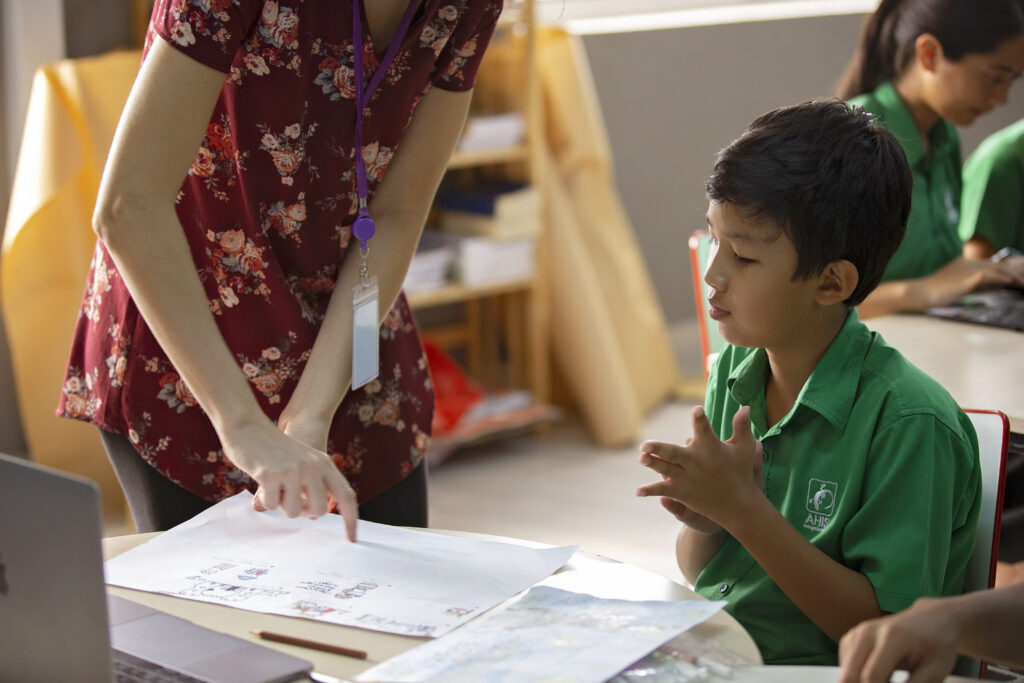
The Secondary School continues with the unique AHIS curriculum that integrates the Cambodian National Curriculum with the English National Curriculum. The Inquiry based learning of the Primary School is extended to incorporate aspects of Project Based Learning which involves students in creative planning, collaboration, and critical thinking. The flexibility of PBL encourages open-ended and thought provoking research by students in areas of interest.
In covering all areas of both curricular, students develop a deeper awareness and beneficial experiences in the areas of Art, Music, Technology and Design. In these disciplines, students are encouraged to create and admire the work of others.
During many projects, the students prepare and cook special Cambodian dishes to share and are reminded of the importance of cultural traditions. Moreover, students are encouraged to enjoy the beauty of Cambodia through educational visits to places within Phnom Penh and beyond such as Kep National Park, Bokor Mountain, and Mondulkiri. They are exposed to the country’s long and, at times, painful history through projects on Ancient Civilisations and visits to Tuol Sleng and the Killing Fields.
Teaching and learning continue to be from a Christian Worldview, but an understanding of the other major world religions is also added in Secondary as projects facilitate investigation of people’s actions, values and beliefs. Students are able to articulate their questions, develop their own Biblical Christian Worldview and prepare to thrive in a world that is ever changing.
As a bilingual school, AHIS values the majority of our students’ first language–Khmer, and English as an additional language. By the time students are in the Secondary School, it is expected that they will be fluent in speaking, reading and writing both languages. In this way, the language and the culture of Cambodia are valued and students are equipped to take their place on the world stage. In this light, AHIS students have the opportunity to flourish as tomorrow’s leaders, workers, and citizens in Cambodia and beyond.
As Secondary students continue to excel in both Khmer and English they will have the opportunity to take examinations and gain qualifications; recognised both nationally and internationally. In Years 9 and 12, students will take the Cambodian national exams. Passing the Year 12 exam ensures access to the top Cambodian universities for higher education.
From Year 10 onwards, students will have the valuable opportunity to take IGCSE exams with Cambridge. Passes [A – C] in these qualifications enable students to access some US universities as well as providing the foundation for further study to an ‘A’ level standard which ensures access to any UK university. Moreover, Many Australian universities accept A level passes for entrance to degree courses, as well.
These qualifications also provide an excellent foundation for further lifelong learning. Although not all students will continue in formal higher education as they enter the world of work and business after school, but these graduates and their skills will ensure ongoing innovation in the economy and the development of a healthy democracy in their home country of Cambodia.
